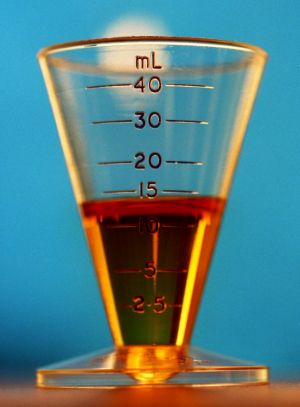
Anaesthetists say some cough suppressants are causing dangerous reactions during surgery. Photo: Louise Kennerley
Anaesthetists are urging health authorities to restrict the supply of more than 50 cough medicines because of fears they are causing potentially fatal allergic reactions during surgery.
Chair of the Australian and New Zealand Anaesthetic Allergy Group, Dr Michael Rose, said there was growing evidence a cough suppressant called pholcodine was putting people at risk of anaphylaxis when they were given muscle relaxant drugs for surgery.
The Australian register of therapeutic goods lists 54 cough syrups and lozenges containing pholcodine, including some Benadryl, Codral and Difflam products, and others marketed for children.
While the rate of anaphylaxis during surgery in Australia is unknown due to a lack of mandatory reporting, a new study of anaesthetic-related deaths by the Australian and New Zealand College of Anaesthetists has highlighted seven fatal cases of anaphylaxis between 2009 and 2011.
Dr Rose said it was likely these patients’ previous use of products containing pholcodine was involved in their catastrophic allergic reaction. Research had shown the cough suppressant could create antibodies in people that interact with neuromuscular blocking drugs – muscle relaxants used to temporarily paralyse people for surgery.
While not everybody who has consumed pholcodine in the past will have an allergic reaction to these drugs, Dr Rose said research from Norway showed that when the country’s only pholcodine based product was taken off the market in 2007, allergic reactions to muscle relaxants dropped significantly. Before 2007, the country’s rate of anaphylaxis due to muscle relaxants was 10 times higher than in Sweden where no pholcodine was available.
Dr Rose said anaesthetists had asked Australia’s Therapeutic Goods Administration to limit access to pholcodine products which are currently available over the counter. But the drug watchdog has so far said there is not enough evidence for it to act.
Believing the TGA’s review used flawed data, Dr Rose said anaesthetists were now preparing a new submission to the authority, requesting reconsideration of the issue.
“We would love it (pholcodine) to be completely banned but we don’t think that will happen. It’s big business in Australia and all around the world for drug companies to market cough suppressants so they are obviously resistant to having it banned or made prescription only because it is not in their commercial interests to do so,” he said.
Dr Rose said although the TGA wanted proof of the link, it was almost impossible to conduct a clinical trial to prove it because no drug company would be interested in funding one.
He said given a 2012 Cochrane review of cough suppressant medicines had found “no good evidence for or against their effectiveness”, people should avoid using products with pholcodine in them.
“There are other cough suppressants available at the chemist that do not include pholcodine,” Dr Rose said.
The warning came as the report Safety of Anaesthesia: A review of anaesthesia-related mortality in Australia and New Zealand 2009-2011 found the risk of dying under anaesthesia was low in Australia, occurring once in every 58,000 procedures per year.
“The practice of anaesthesia has never been safer,” said author of the report, Associate Professor Larry McNicol.
